
A charity volunteer whose husband was awarded an OBE for his exceptional service with the Royal Fleet Auxiliary hopes to save more lives in his memory by revealing how a catastrophic brain tumour claimed his life less than a week after diagnosis.
Determined to turn the spotlight on brain tumours during March’s Brain Tumour Awareness month, Phillipa Anders, 52, told how her husband-of-18-years, Captain Rob Anders, 49, died just six days after being given 12-18 months to live following the discovery of a grade 4 glioblastoma.
Still coming to terms with his death, with the help of her children, Nell, 17, and Will, 16, Phillipa, of Rendlesham, east Suffolk, said: “He was over 6ft tall and weighed around 16 stone. Yet, this brain tumour took him down within a week. He didn’t stand a chance.”.
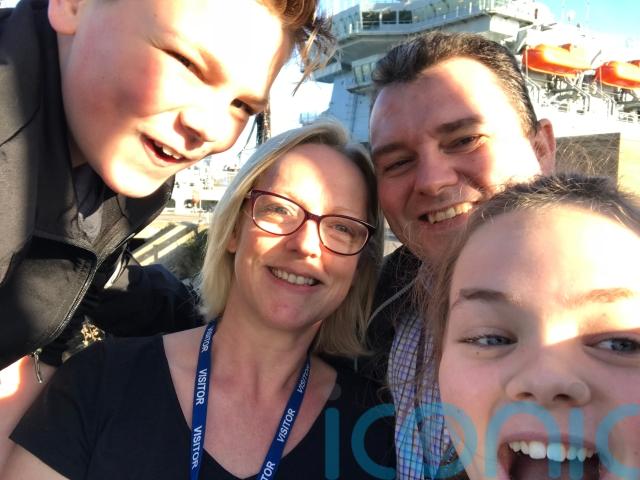
Rob, who served for 30 years in the Royal Fleet Auxiliary, rising from a deckhand at 17 to the deputy commodore – second in charge of the entire fleet – at the time of his death, was awarded an OBE in March 2020 for leading a rescue mission following a hurricane in the Bahamas.
Rob directed a crew, including personnel from the RAF, Navy, Royal Engineers. the Royal Logistics Corps and the Royal Marines and, using boats and a helicopter, he oversaw the clearing of 50 miles of blocked roads to bring aid to nine remote communities during the devastating natural disaster.
But just months after his remarkable achievements were recognised by royalty, he was dead.
Phillipa said: “Rob hated being thought of as a hero. He said the OBE should have gone to the ship, not him.
“Still, he helped so many people in his life. Now, by sharing what happened to him, I’m hoping he can help even more.
Meeting Rob in 2002, Phillipa said he brought his approach to work into their relationship from the start.
She said: “With everything Rob did with Hurricane Dorian, it was get in and get it done.
“He was the same with me. He met me, decided I was the one, within a year we were married, a year on we had Nell, then a little over a year later we had Will.”
Romantic Rob became known as “the flower man” at Phillipa’s work, as he would send huge bouquets of red roses every week during his months away at sea.
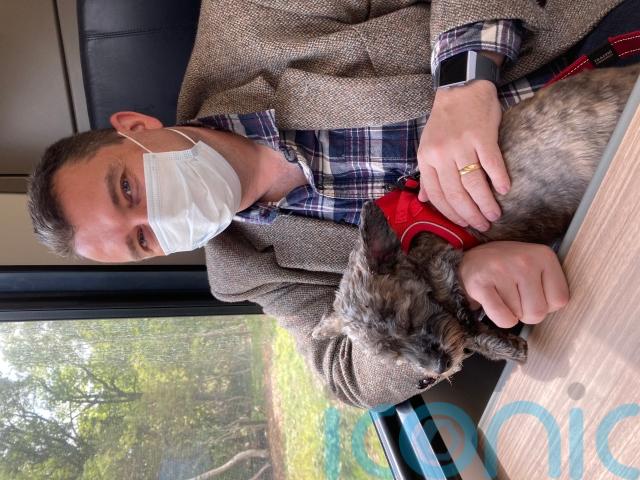
But it was when he was with his family that Phillipa says Rob was at his happiest.
She said: “We didn’t see Rob as heroic. We didn’t see that work side of him.
“He’d go away for four or five months, come home and just slob on the sofa, feet up, lazy. He was like any other bloke really.”
Rob was not always laid back, though, according to Phillipa, who said his “stubborn streak” came out during family walks in lockdown, which he would navigate with an out-of-date map and when competing with the kids on GCSE mock papers.
She said: “The out-of-date map took us through an open prison. We ended up getting chased by wild pigs because the map was so out of date.
“Rob said this was absolutely the right way to go. When the wild pigs appeared, he hid behind his son!”
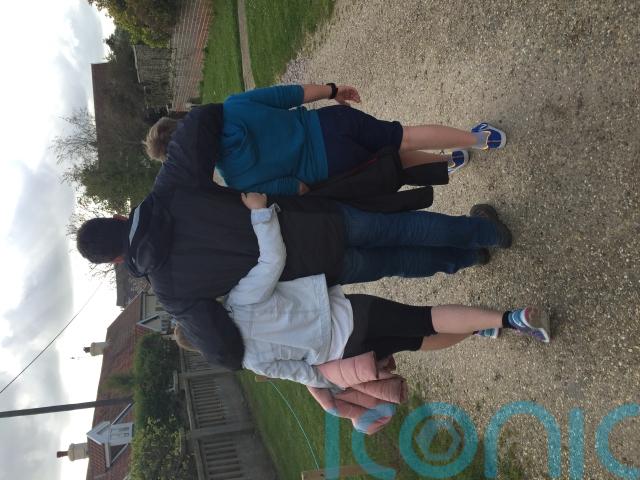
Due to the pandemic, Rob was living in Portsmouth in autumn 2020 when the first signs of his brain tumour manifested.
He began complaining of pins and needles to Phillipa during his daily calls home, but initially put the symptoms down to stress.
In December, with Rob’s pins and needles now impacting his arms and face, Phillipa drove down to Portsmouth to take him to A&E at Ipswich Hospital in Suffolk.
He was admitted and an MRI scan revealed a 7-9cm mass on his brain, which was confirmed as a terminal brain tumour the following day.
Due to the advanced stage of the cancer, Rob was given 12-18 months to live and scheduled for urgent surgery the following week to remove a portion of the tumour before having palliative chemotherapy.
Unable to visit because of Covid restrictions, Phillipa said: “Rob just went into panic mode. He was looking for life insurance documents, pension stuff. All his focus was on where we’d be financially.
“I just went into coping mode. At that point, it was about doing everything possible to make Rob comfortable.
“Seeing this big, brilliant, capable person terrified and anxious and not being able to do routine things for himself, I just couldn’t think of myself. Just him.
“When I dropped Rob at the hospital, he was walking, talking. When I picked him up days later, he couldn’t walk and was in a wheelchair. He couldn’t even really speak and was so confused. He’d also lost a huge amount of weight in just days.”
The Anders family spent the weekend all four together in bed, reading, watching television and films.
Then, the night before his scheduled surgery at Addenbrookes Hospital in Cambridge, a two-hour drive from their home, Rob was thrashing around in bed beside Phillipa.
Initially, she thought it was worry about the operation, but she eventually called 111 who told her to take him to Addenbrookes A&E straight away.
Again, the whole family drove to the hospital, but the children were unable to come inside, so Rob told them he loved them and would see them soon.
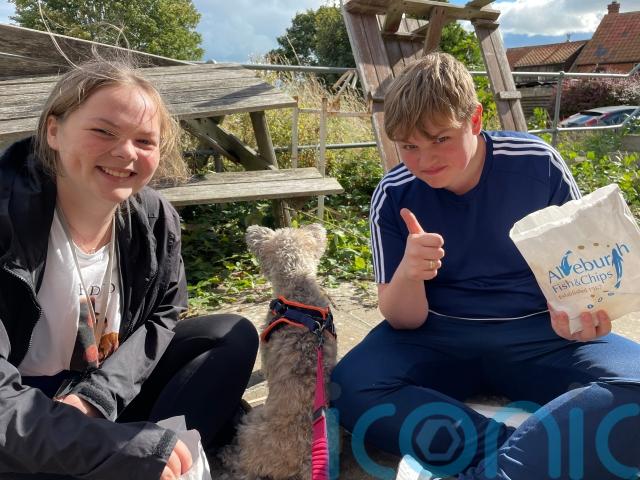
Within half an hour of arriving at the hospital, Phillipa was beside her husband’s bed when he went an odd colour and made a strange noise.
Medics rushed in, resuscitated him and Phillipa was sent home.
It was later confirmed a cyst even larger than the tumour was also present in the back of Rob’s brain, causing pressure, which had brought on a seizure.
Still, despite their anxieties, his wife and children assumed Rob’s surgery would proceed and they would see him again the next day.
But, that evening, the hospital called and asked Phillipa to return as soon as possible.
She arrived to the news that her husband had suffered another seizure lasting two hours and that, tragically, there was nothing more that could be done.
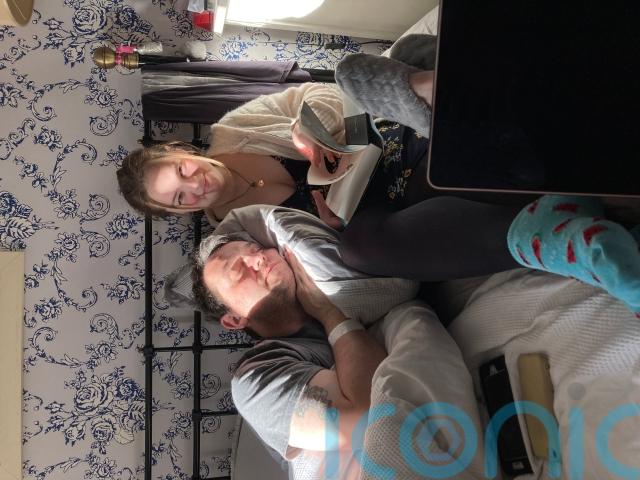
At 1.30am on 22 December 2020, Phillipa sat beside her husband as he passed away.
Recalling the moment, she said: “It was almost beautiful.
“Rob was unconscious, but I was told he could hear me. So I sat beside him in a private room on this very quiet ward. No beeping, no machines, just us, a big cup of tea and a box of tissues.
“I told him how wonderful he was and truly believe he could hear me. I sat there holding his hand and then he was gone.”
Just six days after his diagnosis, Rob had passed away aged 49.
Moments after his death, Phillipa received a text from Nell, who had not yet been told the severity of the situation.
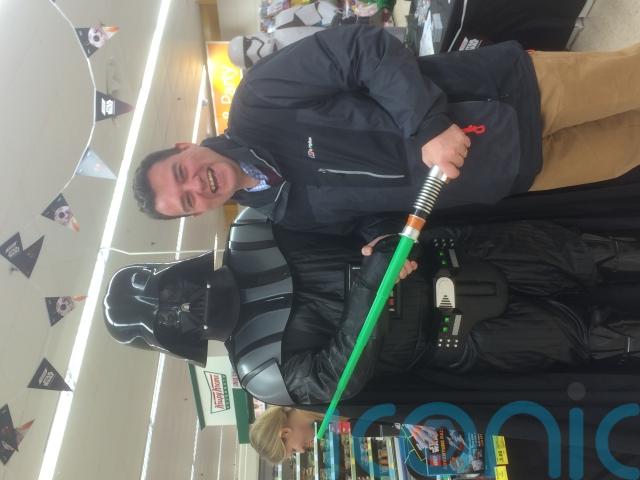
Both she and her brother had “felt” the moment their father had passed away.
Phillipa said: “I didn’t speak to the kids whilst I was at the hospital. I saw the message from Nell but stuff in the hospital overtook anything else. I just remember my heart dropping.”
In August 2021, Rob’s standing in the military community was marked by a Committal of Ashes at Sea ceremony, where his remains were dropped off the coast of Weymouth.
For the Anders family, it was an opportunity to hear wonderful stories about the remarkable man they had lost so suddenly.
Phillipa said: “Everyone was telling us how kind Rob had been, that he’d made it his business to go round the entire ship getting to know everyone, their names and their stories.
“They told us he’d hand out sweets to everyone. We had all these people we’d never met coming up to tell us how much Rob had touched their lives. It was a really beautiful day.”
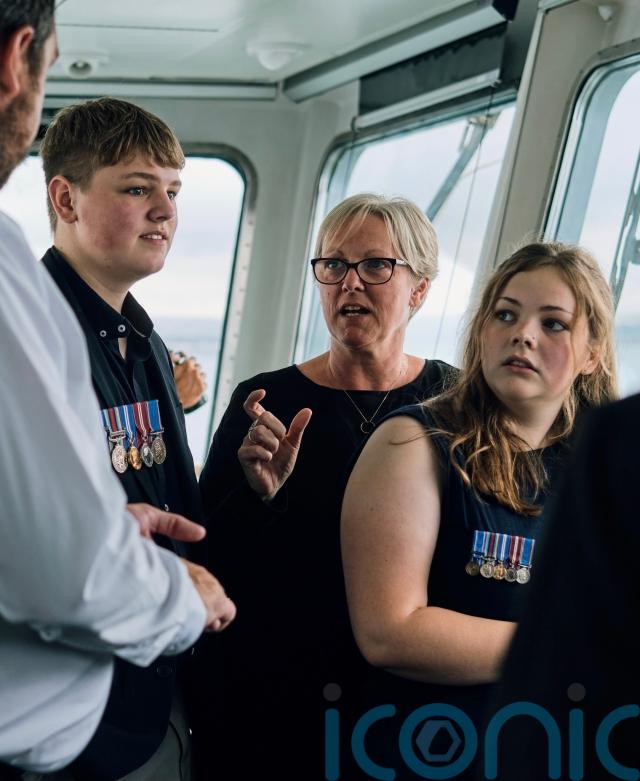
After receiving invaluable support from The Brain Tumour Charity in the wake of Rob’s death, the family have raised over £18,000 for them.
Phillipa said: “It was Nell’s idea to do a marathon walk at first.
“In the end, all her Scout troop joined in. Now a number of ships in the Royal Fleet Auxiliary are helping us raise funds too. They’re doing quizzes with prizes like an hour in the captain’s bath – the only bath on the ship. We also have another event planned for next year.”
According to The Brain Tumour Charity, around 12,000 people in the UK are diagnosed with a brain tumours each year and the Anders family hope that, by raising funds and awareness, they can continue Rob’s lifelong heroic work.
Nell, who was incredibly close to her father, recalls how she and her brother watched his alarming deterioration and both sensed the moment of his passing.
She said: “One day Dad couldn’t walk and then the next day he couldn’t talk. He started falling over regularly, which he would turn it into a joke by commando crawling across the floor.
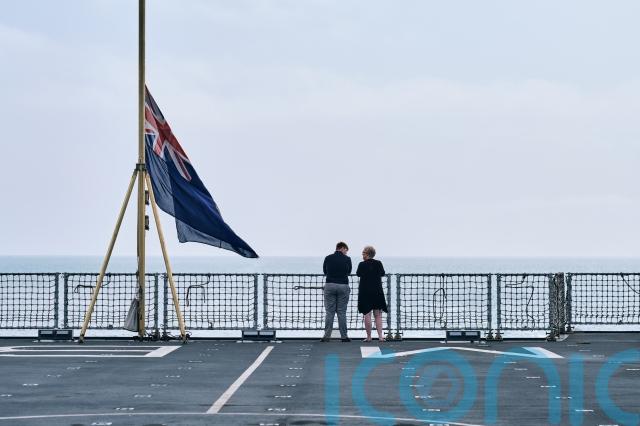
“We could all see that he was clearly embarrassed by what was happening and that really ate me up inside
“Conversations changed from Dad saying we would all be ok, to, ‘You will all be OK’ just a couple of days later. He knew what was happening and that it didn’t look good.
“When he died, I was in the shower at home trying to take my mind off things and my stomach just dropped out of nowhere. Will came in and he said he’d felt the same.
“I said, ‘Do you think Dad just died?’ and he said ‘Yeah.’ We text Mum and he had.”
Since her dad’s passing, Nell has realised the extent of his achievements and his disarming modesty.
She said: “We never had to deal with stressed-out work Dad.
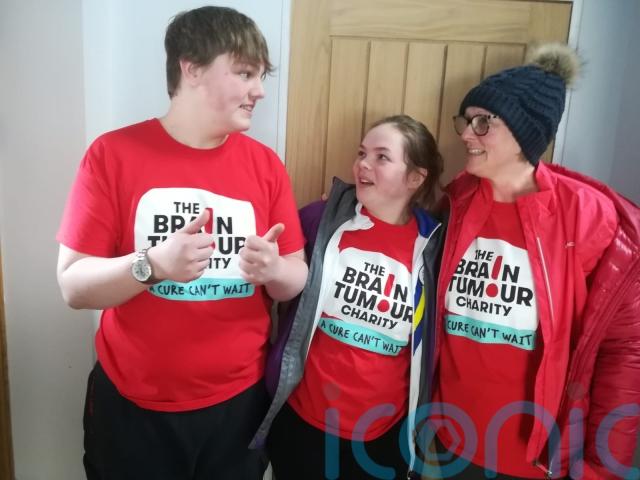
“If we ever told him something he did was amazing he’d say, ‘It wasn’t me it was the ship.’
“He hated the focus being on him. It was only after he died that we realised the regard everyone had for him.”
Alex Lochrane, Chief Executive at The Brain Tumour Charity, which funds world-class research and provides specialist support services, said: “Phillipa and the Anders family have been through a truly awful ordeal after losing Rob to a brain tumour in such a sudden manner. Glioblastoma brain tumours are particularly aggressive and can unfortunately take away a loved one incredibly quickly.”
The most common warning signs of a brain tumour are:
Headaches
Changes in vision
Seizures
Nausea or sickness
Loss of taste or smell
Fatigue
Subscribe or register today to discover more from DonegalLive.ie
Buy the e-paper of the Donegal Democrat, Donegal People's Press, Donegal Post and Inish Times here for instant access to Donegal's premier news titles.
Keep up with the latest news from Donegal with our daily newsletter featuring the most important stories of the day delivered to your inbox every evening at 5pm.